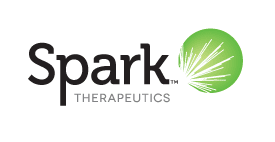
Five Philly Gene Therapy Companies You Should Know
The innovative work of Philadelphia scientists in the development of gene- and cell-based therapies earned the region the moniker “Cellicon Valley.” By modifying cells at their very core – the DNA – these efforts are changing the way scientists and clinicians think about the word “cure” in a wide variety of diseases.
The road to implementation of gene therapy has not always been smooth. But this road has run through Philadelphia. The death of a patient in a clinical trial that was led by gene therapy pioneer Dr. James Wilson and colleagues at the University of Pennsylvania put a chill on gene therapy research. Philly’s resilience and collaborative infrastructure, however, led to a renaissance and the development of the first approved in vivo therapy by Spark Therapeutics.
More than 40 cell and gene therapy companies call Philadelphia home. Their work is facilitated by academic/industrial partnerships with world-class scientists at Children’s Hospital of Philadelphia (CHOP), Temple University, Drexel University, and the University of Pennsylvania. Led by Wilson, UPenn’s Gene Therapy Program (GTP) has been a particularly strong catalyst of the growth that led to $3 billion in investment in cell and gene therapies (CGT) in 2021.
Therapies involving genetic manipulation of cells outside of the body, including CAR-T therapy, have already revolutionized the treatment of cancer and other diseases. But these five companies are leading the way in in vivo gene therapy – the modification of DNA within patients, often to replace defective genes with functioning copies.
Spark Therapeutics
Spark envisions “a world where no life is limited by genetic disease.” Spark has the credentials to bring this vision into focus, as they have one of only two in vivo gene therapies that have been brought to market. Luxturna (voretigene neparvovec) was approved by the FDA in 2017. Luxturna uses an adeno-associated virus (AAV) to deliver a replacement RPE65 gene directly to the retinas of children with certain forms of inherited retinal disease.

Spark has not stopped with its initial success in retinal disease. It is deploying its optimized viral vectors and robust in-house manufacturing capabilities in the pursuit of treatments for multiple other diseases, including liver and neurodegenerative diseases. In addition, two hemophilia-targeted therapies are currently in phase 3 trials, and another is in Phase 1/2.
Spark is a shining example of the collaborative Philly culture that has, well, sparked the renaissance in gene therapy. Spark was originally created by CHOP to speed the development of pediatric gene therapies, and CHOP played an integral role in the development of Luxturna. Spark is also investing $575 million to build a Gene Therapy Innovation Center on the Philly campus of Drexel University.
As an indication of its achievements and potential, Spark was acquired by pharmaceutical giant Roche in a $4.8 billion deal in 2019.
Passage Bio, Inc.
Passage Bio’s motto is that “Potential doesn’t save lives – medicines do.” They are working collaboratively with the UPenn GTP and others to accelerate the development of the promise of gene therapy.

Passage Bio is rapidly moving their innovative gene therapies for genetic disorders of the central nervous system into patients. No adverse effects have been reported from an early trial of a treatment of GM1 gangliosidosis, and the first patient was dosed as part of a Phase 1/2 trial of a gene therapy for Krabbe disease earlier this year. A study of a therapy to replace the defective granulin gene for the treatment of frontotemporal dementia is currently enrolling patients.
Passage Bio was co-founded by Wilson in partnership with entrepreneur Dr. Stephen Squinto and the late Dr. Tadataka Yamada in 2017. They have raised significant capital through their offering on NASDAQ, but they recently announced a restructuring. They plan to focus more intensely on their gene therapy work and to strengthen their collaborations with GTP.
Spirovant Sciences
Cystic fibrosis is caused by errors in the gene coding for CFTR, which normally facilitates the movement of chloride ions across lung epithelial cells. Traditional treatments for CF target the symptoms, while some relatively new pharmacological agents provide mutation-dependent support of CFTR itself. Spirovant, on the other hand, is developing gene therapy agents that replace the defective CFTR gene and potentially provide a long-lasting, mutation-independent cure.

The key insights that support Spirovant’s work in CF and other lung diseases include the development of viral vectors that specifically target the airway epithelium. Pre-clinical work with AAV-based SPI-101 demonstrated restoration of the membrane potentials that characterize well-functioning CFTR in an animal model. In 2020, another inhaled AAV strategy (SPIRO-2101) for a subset of CF patients, was granted orphan drug and rare disease designations by the FDA, potentially facilitating movement to market.
Spirovant was purchased by Sumitomo Pharma (formerly Sumitomo Dainippon Pharma) in 2021 as part of a $3 billion deal. Additional funding has come from the Cystic Fibrosis Foundation.
Scout Bio, Inc.
Scout Bio represents another industrial/academic partnership with UPenn’s GTP. ScoutBio, however, hopes to bring the promise of genetic therapies home through a different route – our cats and dogs.

Scout Bio partners a wealth of veterinary experience with the AAV-based technologies being studied in the heart of Philly. Current efforts are focused on three chronic feline diseases: diabetes, arthritis, and chronic kidney disease. Scout Bio is not attempting to replace defective genes. Instead, Scout Bio’s strategy is to use in vivo gene therapy to express beneficial proteins designed to combat the disease state as a sort of internally expressed biologic drug.
Feline diabetes is one target. In this realm, Scout Bio has developed an AAV vector to deliver a gene coding for glucacon-like peptide 1 (GLP-1). This protein interacts with fragile insulin-producing cells. It both signals for insulin release and protects the cells from further damage. Early-stage clinical trials are underway to determine if this therapy will support traditional insulin-based therapies or perhaps even provide a lasting cure for feline diabetes.
Another study is evaluating an AAV-mediated treatment for feline arthritis. Here, the delivered gene encodes an antibody that blocks the function of nerve growth factor, a pain-producing protein. Pre-clinical studies demonstrated durable expression of this antibody, and results of clinical trials are expected this year.
Pre-clinical successes and a steady stream of funding led Scout Bio to be named Best Animal Health Start-up 2021 by IHS Market.
Excision BioTherapeutics
The advent of CRISPR technology means that gene therapy need not only add genes. Excision is developing AAV-delivered DNA designed to remove genes that were added by viruses and other pathogens. Rather than treating a virus or the symptoms of a viral infection, these gene therapy strategies would potentially completely eliminate the virus from the body.

Excision was co-founded by Nobel laureate and discoverer of CRISPR technology Dr. Jennifer Doudna of University of California, Berkeley, and Dr. Kamel Khalili, professor at the Lewis Katz School of Medicine at Temple University. A partnership between Excision and Temple has led to the development of EBT-101, an AAV-delivered CRISPR gene editing system that has been demonstrated to remove HIV DNA from human cells in culture and from laboratory mice. Based on these promising pre-clinical results, Excision raised $60 million to begin clinical testing of this potentially revolutionary treatment.
Excision is also pursuing the use of viral-delivered CRISPR machinery in the treatment of infections with JC virus, the causative agent of a fatal demyelinating brain disease, and herpes simplex virus. They are also pioneering a non-viral gene therapy technique that is aimed at hepatitis B.






